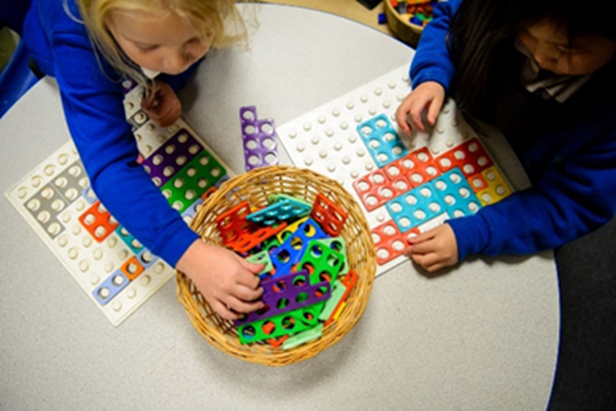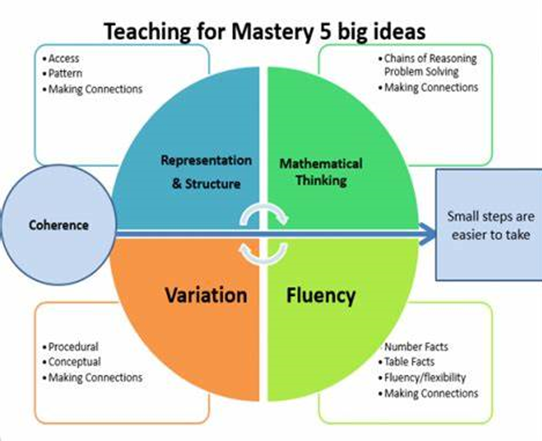Maths
Carefully planned learning sequences allow children to develop mathematical concepts and skills. Children work through the curriculum in small steps that allow in-depth teaching of mathematical concepts. This reduces cognitive load and allows children to show application of fluency and their deeper understanding through problem solving and reasoning. Teachers use the White Rose scheme alongside the Compass Progression and Assessment Framework, to plan and assess learning. Topics and concepts are revisited throughout the year to build on prior learning and prevent gaps from widening. All children will access the same learning, with lower attaining children accessing support from adults and peers. The inclusive nature of a mastery approach to teaching ensure that all children are appropriately scaffolded to keep up not catch-up.
Arithmetic tests, end of block assessment, mini quizzes and times table tests are used in low-pressure, low-stakes sessions. Pupils will undertake these in order to revisit previously learned material and to practise recalling learning stored in long-term memory.

Mastery Big 5 Ideas:
Sequences of learning will be planned using the Five Big Ideas, underpinning teaching for mastery.

Coherence Lessons are broken down into small, connected steps that gradually unfold the concept, providing access for all children and leading to a generalisation of the concept and the ability to apply the concept to a range of contexts.
Representation and Structure Representations used in lessons expose the mathematical structure being taught, the aim being that students can do the maths without recourse to the representation.
Mathematical Thinking If taught ideas are to be understood deeply, they must not merely be passively received but must be worked on by the student: thought about, reasoned with and discussed with others.
Fluency Quick and efficient recall of facts and procedures and the flexibility to move between different contexts and representations of mathematics.
Variation Variation is twofold. It is firstly about how the teacher represents the concept being taught, often in more than one way, to draw attention to critical aspects, and to develop deep and holistic understanding. It is also about the sequencing of the episodes, activities and exercises used within a lesson and follow up practice, paying attention to what is kept the same and what changes, to connect the mathematics and draw attention to mathematical relationships and structure.
Teachers will explicitly teach Metacognitive strategies, and these will be particularly apparent within Maths, problem-solving lessons. Teachers will use carefully crafted questions that require children to think and reflect on their learning. When planning, teachers encourage pupils to plan, monitor and evaluate their learning. Checklists are used to enable children to formally self-assess their learning. Teachers will use cognitive conflict as a way of Assessment for Learning and as a way of activating prior knowledge and deepen understanding.
For more information about the maths curriculum, please contact the school.
